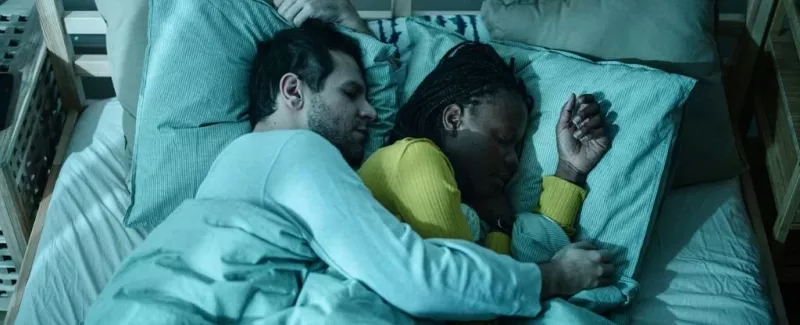Even in the depths of sleep, your brain is not completely shut off from those around you.
The sound of snoring, the tugging of blankets, and the bumping of limbs are all registering on some level, and yet far from interrupting your sleep, new research suggests sharing a bed could actually make you feel like you've had a better night of rest.
At least, that is, when you're sleeping with a spouse or partner; if someone regularly sleeps with their child, they generally report greater insomnia than those who sleep alone.
The findings are based on survey responses and sleep scores from more than 1,000 working-age adults in the US, and they suggest that whom we sleep next to can impact how good we feel when we wake up.
Compared to those who slept alone, participants who shared a bed with their partner reported less fatigue and an ability to fall asleep faster and sleep longer.
This group also had lower depression, anxiety, and stress scores than those who slept alone.
"Sleeping with a romantic partner or spouse shows to have great benefits on sleep health including reduced sleep apnea risk, sleep insomnia severity, and overall improvement in sleep quality," says psychiatrist Brandon Fuentes from the University of Arizona.
Whether the improvements to mental health are due to the benefits of co-sleep or the quality of the romantic relationship overall is unclear. It could even be a bit of both.
Generally, people in committed relationships show better physical and mental health than those who are single.
It's difficult to decipher why this is. There are just so many variables that impact the body and the mind over the course of a lifetime. Throw in the mysterious nature of sleep, and the picture grows even cloudier.
Most studies that explored the benefits of sleeping alone or sharing a bed have relied on self-reported sleep quality, just like this one did.
Only a few studies have dug into how sleeping with a romantic partner actually influences the crucial neurological phases of sleep, like rapid eye movement sleep (REM).
Interestingly, the limited research on this topic found that couples not only synchronize their movements during sleep, but they also synchronize their stages of sleep. When couples slept in the same bed, their REM sleep increased by 10 percent and was less interrupted than when sleeping alone.
Interpersonal synchronization is linked to prosocial behavior, social bonding, and positive affect, all of which have benefits for mental health.
This could be part of the reason why surveys keep finding evidence that couples feel better about sleep when they do so with one another.
Another survey published just this year found respondents thought they fell asleep faster at night if they shared a bed with a long-term partner.
Unfortunately, surveys like these can't tell us how sleeping with a partner actually improves a person's sleep, only that a correlation exists.
It could be that a person merely thinks they've slept better, when, in fact, they have not.
To get around this, some research has relied on smartwatches that record movement during sleep.
One such study found movement at night increases when a person sleeps alongside their partner, falling in synchrony with the other person. But just because more movement is registered at night doesn't necessarily mean the sleep was worse.
Without further research, the jury is out on whether or not sleeping with a partner is better for you, or just plain different from sleeping alone.
The research was presented at the annual meeting of the Associated Professional Sleep Societies.




